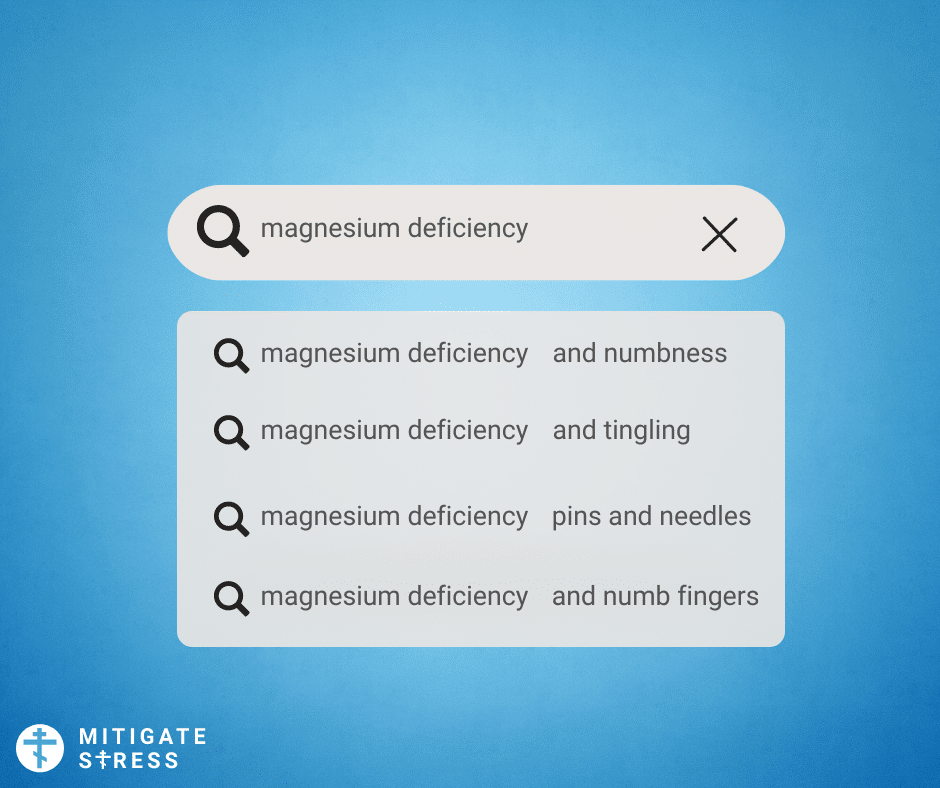Magnesium, our unsung hero, is an essential mineral that quietly plays a pivotal role in over 300 biochemical reactions within our bodies. It’s the backbone of nerve and muscle function, keeps our blood pressure in check, bolsters our immune system, and ensures our bones remain strong and healthy1.
However, imagine the chaos if this silent guardian were to be absent or deficient. Studies reveal that a deficiency in magnesium may lead to several adverse health effects, one of which includes numbness in extremities, a condition that can be both alarming and debilitating1.
The Intricacies of Magnesium Deficiency
Magnesium deficiency, or hypomagnesemia as it is scientifically termed, can sneak up on us due to a variety of factors. These might include insufficient dietary intake, chronic alcoholism, or even the side effects from certain medications2. It’s a subtle enemy, often overlooked, yet its chronic absence has been linked to several human diseases3.
Symptoms of magnesium deficiency can be elusive and range from mild to severe. Early signs could be as subtle as fatigue, anorexia, irritability, and insomnia4. However, as the deficiency progresses, these symptoms can escalate to more severe manifestations such as numbness, tingling, muscle cramps, and even seizures5.
Unraveling the Connection Between Magnesium Deficiency and Numbness
Numbness, especially in the hands and feet, is often one of the first alarm bells of magnesium deficiency6. This sensation of numbness is triggered by the inadequate action of magnesium on nerve functions, leading to issues with nerve conduction.
Case studies have shed light on this phenomenon. For instance, a 27-year-old woman with no significant medical history presented with symmetrical numbness, tingling, and weakness in all four extremities1. Another study highlighted the case of a 67-year-old woman who experienced bilateral hand numbness and perioral numbness after stopping vitamin D7. In both instances, magnesium deficiency was the culprit.
In patients undergoing platinum-based chemotherapy, magnesium deficiency was identified as a potential cause of numbness and other neurological symptoms8. Similarly, in individuals suffering from type 2 diabetes, severe magnesium deficiency can lead to numbness4.
Bolstering Your Magnesium Levels
The good news is, restoring and maintaining optimal magnesium levels can help ward off the symptoms associated with its deficiency. Here are two effective ways to boost your magnesium intake:
Magnesium Bicarbonate Products: This form of magnesium is highly bioavailable, meaning it can be easily absorbed by the body. Incorporating magnesium bicarbonate into your daily routine can significantly improve your overall magnesium levels, thereby enhancing your health.
Topical Magnesium Oil: Another efficient method to increase your magnesium levels is by applying magnesium oil directly to the skin. This allows for transdermal absorption, bypassing the digestive system and going straight to the source.
In conclusion, recognizing the importance of magnesium in maintaining our overall health is crucial. By understanding the potential symptoms of its deficiency, such as numbness, and taking steps to bolster your magnesium levels, you can contribute significantly to your well-being. As always, be sure to consult with your healthcare practitioner before starting any supplements.






0 Comments